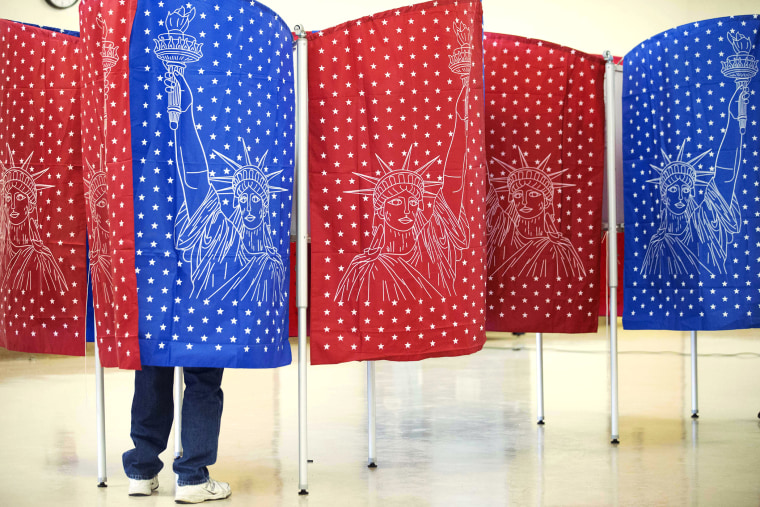U.S. Navy veteran Larry Harmon was a registered voter in Ohio, and he voted in the 2004 and 2008 election cycles. Uninspired by his choices in 2010, 2012, and 2014, Harmon sat those elections out.
What he didn't know until 2015, however, when he tried to vote on a ballot initiative, is that his home state had un-registered him, striking his name from Ohio's voter rolls because he hadn't participated in a while. The Buckeye State's Republican-led government has been especially aggressive in these voter purges in recent years, which as many observers have noted, tend to disproportionately affect minority and low-income communities.
Ohio's practice faced a test at the U.S. Supreme Court, and in a 5-4 ruling, the court's conservative majority sided with the state. NBC News' Pete Williams reported:
All states have procedures for removing from their registration lists the names of people who have moved and are therefore no longer eligible to vote in a given precinct. The issue before the Supreme Court was whether a voter's decision to sit out a certain number of elections could be the trigger for that effort.Justice Samuel Alito, who wrote the majority opinion, said the court's job was not "to decide whether Ohio's supplemental process is the ideal method for keeping its voting rolls up to date. The only question before us is whether it violates federal law. It does not."
The decision, which is online here, reversed a federal appeals court ruling that said Ohio's practices violated the National Voter Registration Act (NVRA).
The four justices chosen by Democratic presidents dissented, though Sonia Sotomayor seemed especially displeased by the five-member conservative majority.
By affirming the legality of the process, Sotomayor wrote, the majority "entirely ignores the history of voter suppression against which the NVRA was enacted and upholds a program that appears to further the very disenfranchisement of minority and low-income voters that Congress set out to eradicate."And in light of Monday's awful ruling, communities "that are disproportionately affected by unnecessarily harsh registration laws should not tolerate efforts to marginalize their influence in the political process, nor should allies who recognize blatant unfairness stand idly by."
Given Ohio's electoral significance -- it's often seen as one of the nation's largest swing states, and every successful presidential ticket has won Ohio in the last 14 presidential election cycles -- today's ruling is an important setback for voting rights. But what may matter more is what comes next.
Because the conservative justices didn't just back Ohio's tactics, they also gave a green light to other states that will want to do the same thing. As the NBC News report added, "At least a dozen other politically conservative states said they would adopt a similar practice if Ohio prevailed," which it did.
